Perspectives for Modern Life
Explore articles, insights, and perspectives covering culture, trends, and ideas that matter in today’s fast-moving digital world.
Business
Insights on business trends, leadership, growth, and modern work culture.
Finance
Practical perspectives on finance, money habits, markets, and economic topics.
Health
Articles exploring health, wellness, balance, and everyday lifestyle choices.
Technology
Coverage of technology, digital tools, innovation, and evolving online experiences.

Our Story and Purpose
KS Online is a digital platform built for readers who value clarity, context, and thoughtful perspectives. We publish accessible articles across business, finance, health, technology, and culture, focusing on relevance rather than noise.
Our goal is to inform, explore, and encourage meaningful engagement through well-structured content. KS Online is designed for a global audience seeking reliable insights, modern ideas, and conversations that reflect how people live, work, and think today across regions, industries, and everyday experiences worldwide online readers.
Why Readers Choose Us
KS Online offers clear, relevant content designed for readers who value quality and perspective.

Clear Content
Articles are structured for clarity, readability, and easy understanding.

Relevant Topics
Content covers timely subjects that reflect modern interests and conversations.

Trusted Perspective
Balanced viewpoints help readers explore ideas with context and confidence.

Easy Access
Content is accessible across devices for seamless reading anytime.

Recent Posts:
- Kid-Friendly Travel Destinations Around the World That Balance Fun, Safety, and Learning
- Is AI Making Students Less Engaged? Responsible Use of Artificial Intelligence in Education
- Smart Property Investment Strategies for Long-Term Stability in Changing Markets
- Aquarium Pets Explained: Choosing the Right Fish and Creating a Healthy Home Environment
- The Rise of Esports and Gaming Trends Shaping Competitive Play in 2026

KS Online: Exploring Ideas, Insights, and Everyday Knowledge That Shapes Modern Living
A Platform for Informed, Curious Readers
KS Online is designed as a modern digital blog platform that brings together knowledge, perspectives, and everyday relevance in one accessible space. Built for a global audience, the site focuses on delivering content that informs without overwhelming and engages without distraction. Rather than chasing fleeting trends, KS Online emphasizes clarity, balance, and meaningful exploration across a wide range of topics that matter in daily life.
Readers visit KS Online to gain insight into business, finance, health, technology, travel, and more—presented in a way that is practical, readable, and grounded in real-world context. The platform values structure and thoughtful writing, ensuring articles are easy to follow and relevant to modern lifestyles. Whether exploring emerging digital tools, understanding financial habits, or discovering travel perspectives, KS Online serves as a reliable starting point for informed reading.
With its editorial approach rooted in accessibility and consistency, KS Online aims to support readers who want to stay informed, broaden their understanding, and engage with ideas that reflect how people live, work, and connect today.
Business and Professional Perspectives
Business remains a central topic on KS Online, reflecting the evolving nature of work, leadership, and professional decision-making. Articles within this category explore how organizations adapt to change, how professionals navigate modern workplaces, and how economic shifts influence industries globally. Rather than focusing solely on corporate success stories, the coverage emphasizes understanding systems, strategies, and challenges that shape business environments today.
KS Online approaches business content with a practical lens, offering readers context around management practices, workplace trends, entrepreneurship, and professional development. The goal is to help readers make sense of business concepts without unnecessary complexity. Discussions often highlight adaptability, long-term thinking, and the role of innovation in sustaining growth across different sectors.
By presenting business topics in an accessible way, KS Online supports readers who want to stay informed about professional landscapes without needing specialized backgrounds. The content encourages thoughtful consideration of how business decisions affect people, communities, and markets, making it relevant to both professionals and general readers alike.
E-Commerce and the Digital Marketplace
E-commerce has become an essential part of everyday life, influencing how people shop, sell, and interact with brands. KS Online covers this space by examining the structures, behaviors, and technologies behind online commerce. Rather than focusing on individual products or promotions, the platform explores trends, strategies, and consumer experiences that define digital marketplaces.
Articles in this category often discuss how businesses build online presence, how consumers adapt to digital purchasing, and how logistics, platforms, and user experience shape outcomes. KS Online presents e-commerce topics in a balanced way, acknowledging both opportunities and challenges within the online retail ecosystem.
This coverage helps readers understand how digital commerce fits into broader economic and technological systems. By focusing on insights rather than hype, KS Online ensures readers gain a clearer view of how e-commerce continues to influence global trade, entrepreneurship, and consumer behavior in a rapidly changing digital economy.
Finance and Everyday Money Awareness
Finance is a topic that affects nearly every aspect of daily life, from personal budgeting to global markets. KS Online approaches financial content with an emphasis on understanding rather than speculation. Articles aim to explain financial concepts, habits, and systems in a way that feels approachable and relevant to everyday readers.
Coverage includes discussions on money management, economic trends, financial literacy, and the broader forces shaping financial decisions. KS Online avoids overly technical language, instead focusing on clarity and context so readers can better grasp how financial topics impact their lives.
By offering thoughtful financial perspectives, KS Online supports readers in becoming more aware of how money flows through personal, professional, and global systems. The content encourages informed thinking, helping readers navigate financial topics with greater confidence and understanding.

Health, Wellness, and Lifestyle Balance
Health content on KS Online focuses on awareness, balance, and everyday well-being rather than extreme solutions or trends. Articles explore physical health, mental wellness, lifestyle habits, and the role of routine in maintaining long-term balance. The platform emphasizes practical knowledge that readers can reflect on and apply thoughtfully.
Rather than offering prescriptive advice, KS Online presents health topics as conversations around awareness and informed choices. Coverage often highlights how modern lifestyles affect well-being and how small, consistent habits contribute to overall health.
This approach makes health content accessible to a broad audience. By prioritizing understanding and balance, KS Online creates space for readers to explore wellness topics without pressure, supporting a more mindful and informed relationship with health.
Marketing, Media, and Digital Communication
Marketing plays a significant role in how information, products, and ideas are shared today. KS Online examines marketing as a broader communication system rather than just promotion. Articles explore branding, content strategy, digital communication, and audience engagement across platforms.
The platform approaches marketing topics analytically, helping readers understand how messages are created, distributed, and received. Discussions often touch on ethics, authenticity, and evolving media habits in a digital-first world.
By framing marketing as a study of communication and influence, KS Online offers readers insight into how modern messaging shapes perceptions and behavior. This coverage benefits professionals, creators, and readers who want to better understand the media they interact with daily.
Technology and Digital Innovation
Technology is woven into nearly every aspect of modern life, and KS Online covers this space with clarity and relevance. Articles explore digital tools, innovation, online platforms, and emerging technologies that influence how people work, communicate, and consume information.
Rather than focusing solely on technical specifications, KS Online emphasizes how technology impacts daily experiences and long-term societal shifts. Topics are presented in a way that balances curiosity with practicality, helping readers stay informed without feeling overwhelmed.
This technology coverage supports readers who want to understand digital change without needing specialized expertise. KS Online positions technology as an evolving toolset that shapes lifestyles, industries, and global connections.
Travel, Culture, and Global Perspective
Travel content on KS Online goes beyond destinations, focusing instead on perspective, experience, and cultural understanding. Articles explore how travel influences personal growth, global awareness, and lifestyle choices, even in a digitally connected world.
The platform presents travel as a lens for understanding people, environments, and shared experiences. Coverage often reflects on planning, cultural awareness, and the evolving nature of movement in a modern context.
By framing travel as exploration rather than escape, KS Online provides readers with thoughtful perspectives that resonate whether they are frequent travelers or simply curious about the world beyond their immediate surroundings.

A Thoughtful Space for Modern Readers
KS Online brings together diverse topics under a shared commitment to clarity, relevance, and thoughtful presentation. The platform does not aim to overwhelm readers with information but instead provides structured content that encourages understanding and reflection. Across business, finance, health, technology, travel, and more, KS Online remains focused on delivering value through accessible writing and balanced perspectives.
As digital spaces continue to grow noisier, KS Online stands as a calm, consistent resource for readers seeking meaningful content. By prioritizing readability, context, and relevance, the platform supports informed curiosity and everyday learning. KS Online is built not just as a blog, but as a dependable place where modern ideas, practical knowledge, and global perspectives come together in a clear and engaging way.
Questions or Ideas to Share
If you have questions, feedback, or inquiries, we welcome thoughtful messages and meaningful discussions from readers worldwide.